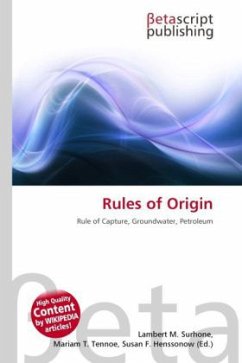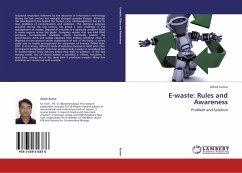Rules of origin are used to determine the country of origin of a product for purposes of international trade. There are two common types of rules of origin depending upon application, the preferential and non-preferential rules of origin (19 CFR 102). The exact rules vary from country to country. Non-preferential rules of origin are used to determine the country of origin for certain purposes. These purposes may be for quotas, anti-dumping, anti-circumvention, statistics or origin labeling. The basis for the non-preferential rules originates from the Kyoto convention which states that if a product is wholly obtained or produced completely within one country the product shall be deemed having origin in that country. For a product which has been produced in more than one country the product shall be determined to have origin in the country where the last substantial transformation took place.
Bitte wählen Sie Ihr Anliegen aus.
Rechnungen
Retourenschein anfordern
Bestellstatus
Storno








